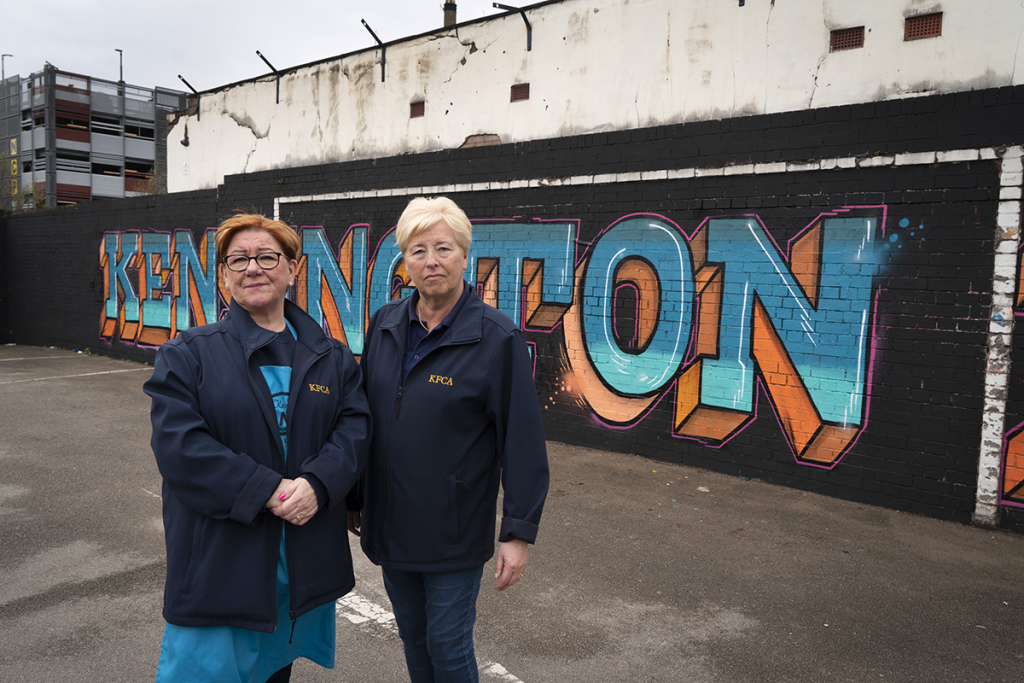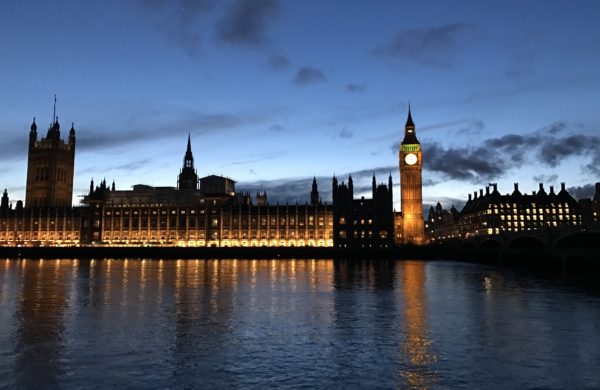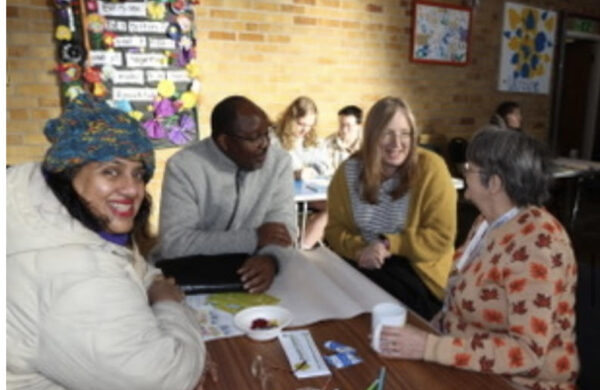Kenny Fields revisited: new hope, amid the tough times
We catch up with Sue Robinson, a community champion in Liverpool - and hear of new grounds for optimism...
Last spring, tens of thousands of people heard from people in a Liverpool neighbourood, thanks to a powerful piece of community storytelling.
The Made In Liverpool film was a fantastic collaboration between Kensington Fields Community Association, The Guardian, Feeding Liverpool and Church Action on Poverty.
If you’ve not seen it, or want to refresh your memory, here it is again:
Community voices
The film looked at issues around community development, local land ownership, food access and voice.
So far, the film has been watched more than 70,000 times online, and has also been screened at Bolton Film Festival and as part of Challenge Poverty Week.
Now, eight months on, we wanted to catch up with one of the central storytellers, to see what had changed.

Meet Sue...
Sue Robinson (on the right in the above photo) runs the community centre where most of the film was shot.
She says: “The film was absolutely brilliant. Once people knew about it, they were all watching it and asking if there was anything they could do. We had lots of people coming over and wanting to volunteer at the Pantry and we’ve been asking some some people to help with other things.”

Cost of living: new responses
In recent months, local people have been dragged deeper and deeper into financial difficulty, as the cost of living has risen to perilous levels. Inevitably, the community centre has been doing what it can to keep people afloat.
“Demand for the Pantry now is off the scale,” says Sue.
“We try to keep to 150 members, but it’s hard and we have a waiting list now of about 35, and we’re also handing out a lot of emergency food support.
“The other new thing we are doing is slow cookery classes. Everyone says the slow cookers are amazing – it’s cheaper than using the oven or microwave, so people can do a meal for much less. So we are doing classes and supplying slow cookers, and as soon as one course ends there are people wanting to join the next one.
“We are still doing our lunch club as well, and we are doing two days a week as a warm hub, for people to come here and be able to save on turning the heating on at home.
“We always ask people what they want us to do at the centre, and at the moment people all want activities around the cost of living, so we try to meet those needs. We’re still doing work with children in the evenings and holidays as well, and a food element comes into everything now. Everything relates to food and energy.
“It is a strain. I am supposed to work 24 hours a week, but this week, by Wednesday, I have worked 30 hours already. I do it because I love being here and I love the people, but for things to change we need the Government or funders to change.”

Where change starts
Bringing about change like that is not easy. But speaking up is a vital beginning.
Sue and others locally are part of the new Speaking Truth To Power programme, backed by Church Action on Poverty, which will support people with experience of poverty and marginalisation as they campaign for systemic change, social justice and more inclusive, dignified systems.
And already, locally, there are glimmers of hope…
One of the big themes identified in last year’s film was the uncertainty around the community centre’s future. For years, Sue and the team have been asking the council to help them secure the lease on the building, or to secure new premises if they do need to move.
Now, after much persistence and tenacity, talks are finally taking place. Watch this space.





Comments (06)
Comments are closed.